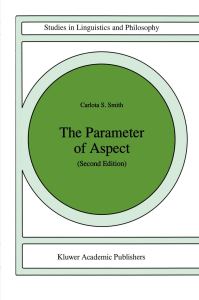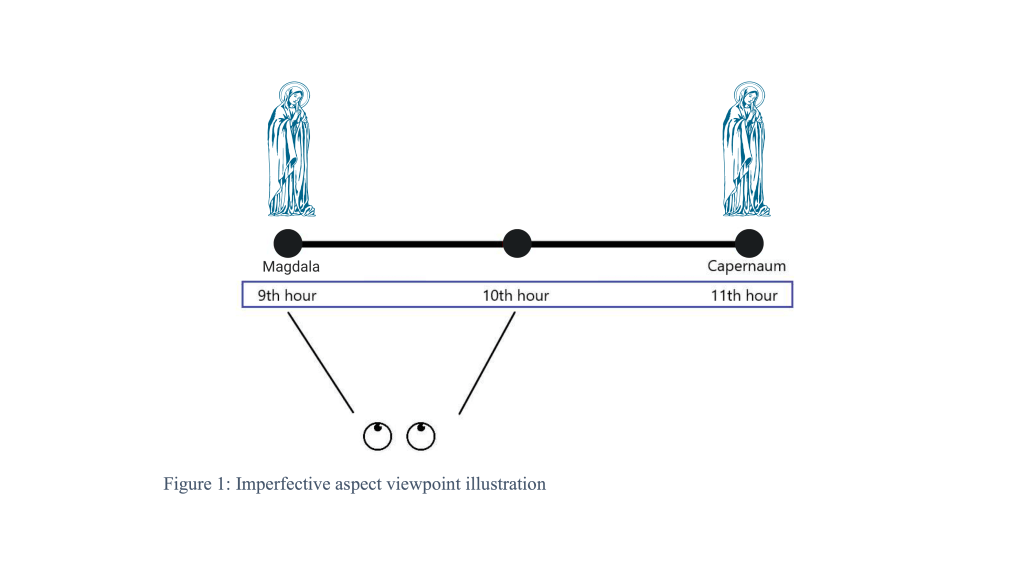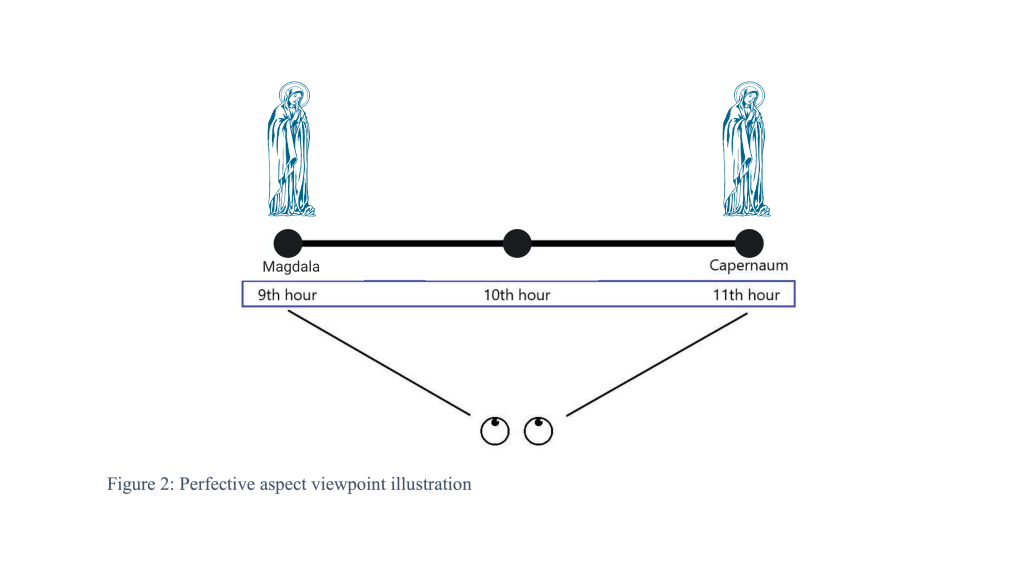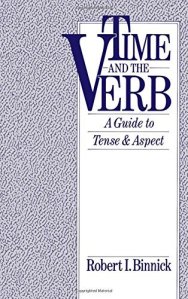 “The Parameter of Aspect” by Carlota Smith
“The Parameter of Aspect” by Carlota SmithChapter 1 begins with the wrong definition of aspect. Campbell makes a distinction between viewpoint aspect and a temporal definition of aspect, which he attributes to Bernard Comrie’s book on aspect published in 1976. The term viewpoint aspect goes back to Carlotta Smith’s 1991 book, “The Parameter of Aspect.” On page 1 of the book, she defines the term “viewpoint aspect” as follows: “Viewpoint aspect gives temporal perspective to a sentence.” In other words, the term “viewpoint aspect” as used in linguistics refers to temporal perspective. As we will see, Campbell wrongly associates viewpoint with spatial notions, which I will return to in a later episode.
I address some of the issues regarding Campbell’s definition of aspect in my forthcoming textbook on New Testament Greek, and I illustrate what linguists mean by “viewpoint aspect.” As Smith says, the term refers to the speaker’s temporal perspective on a given event or state. For example, let’s say Mary traveled from Magdala to Capernaum from the 9th hour to the 11th hour (which I will refer to as simply 9 and 11). When describing this event, the speaker may “view” only part of the event temporally, let’s say from 9-10, and I would describe this as “Mary was traveling from Magdala to Capernaum between 9 and 10.”

In this case, I am only referring to part of Mary’s entire traveling to Capernaum event, and I use the progressive form ‘was traveling’ to make explicit that the event continued beyond the time period specified, namely 9-10. This is the basic idea in imperfective aspect. If I wanted to view the entire event in time, I would say “Mary traveled from Magdala to Capernaum from 9-11.” You would understand this to mean that Mary actually reached Capernaum at 11. The event has ended. This is the basic idea of perfective aspect. 
 “Time and the Verb” by Robert Binnick
“Time and the Verb” by Robert BinnickLet me again be forthright: there is no debate about the meaning of aspect within the semantics literature–it is universally regarded as temporal. Robert Binnick’s book, “Time and the Verb” surveys views on aspect from ancient times to the present, and he never gives the spatial theory as an option because linguists and philosophers simply have not believed that. Again, aspect today is universally regarded as temporal within linguistics.
Campbell does define tense in terms of temporality. He explicitly says that “it normally refers to a verb’s temporal reference (pg. 11).” We will return to this definition of tense, but notice at the outset that Campbell has not told us which two things are related in time. He suggests that there are counterexamples where a present tense refers to an event that occurs in the past, but this is only a counterexample if tense relates the time when the event took place to the time when the utterance was made. Again, this is not the standard definition of tense within linguistics, but we will return to this in a later episode.
